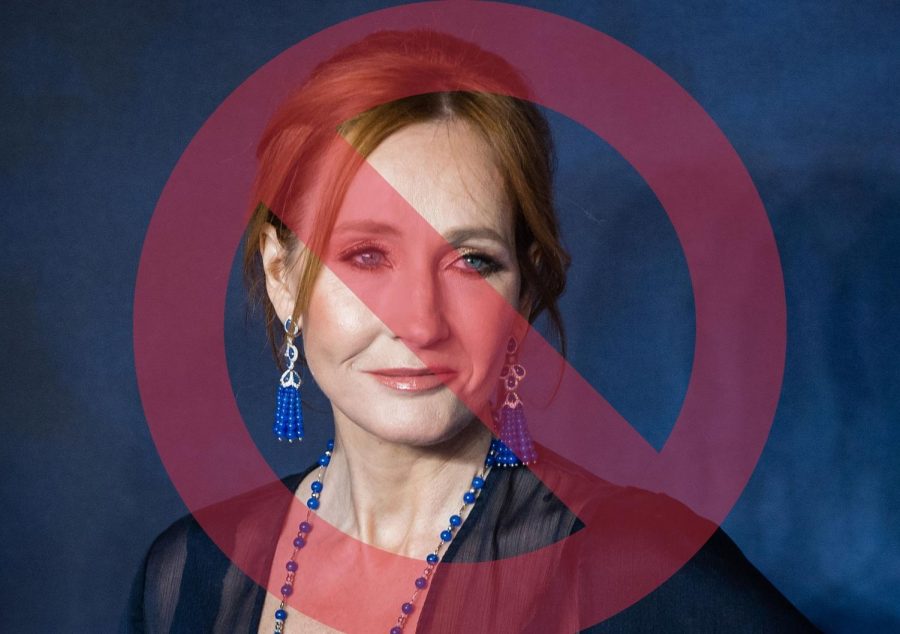Why We Can’t Ignore JK Rowling’s Bigotry
Harry Potter and the Babbling Bigot: Famed Harry Potter author JK Rowling has made herself the center of a crude controversy, yet again.
Harry Potter was one of the most beloved and defining book series of our generation; in many ways, the books illustrate the magic of growing up. JK Rowling, the author of Harry Potter, was admired and respected by young readers everywhere. However, recent controversies over her tweets concerning gender identity have brought the Harry Potter books (with their message of resisting intolerance) into a not-so-favorable light.
JK Rowling’s transphobic comments are not too surprising for longtime fans. Just last December, Rowling came under fire for her support of Maya Forstater, a notorious TERF (Trans Exclusionary Radical Feminist) and thinktank researcher. Forstater was fired for her hateful tweets opposing the Gender Recognition Act, a UK law that would allow people to self-identify as a sex different from the one assigned at birth. JK Rowling sent out a tweet supporting Forstater with the hashtag “IStandWithMaya.” Naturally, the backlash from the Twitter Community was quick, with many criticizing her for standing with someone who is exceptionally transphobic, and others pointing out how Trans Harry Potter fans might feel after seeing that tweet. However, Rowling largely ignored the controversy, refusing to apologize.
In a series of tweets in June 2020, she didn’t seem to change this opinion at all. Rowling criticized an article for its use of the phrase “people who menstruate,” sarcastically suggesting that they could just use the term “women” instead. Again, her name trended on Twitter for several days as people condemned her for the tweet. Many people addressed the fact that women aren’t the only people who menstruate; trans men also do and need hygiene products.
Even after coming under attack, Rowling defended herself, stating that “If sex isn’t real, the lived reality of women globally is erased.” This only caused further uproar, prompting Rowling to send a flurry of tweets further justifying her actions. Some came to her defense, and the hashtag “#IStandWithJKRowling” gained support. The situation became so big that several stars of the Harry Potter series, including Daniel Radcliffe, Emma Watson, Rubert Grint, issued statements supporting the Trans community and saying that they vehemently disagreed with Rowling’s hurtful rhetoric.
It may be tempting to brush this aside and say, “seperate the author from the work.” However, I would argue that it is neither advisable nor even possible to separate the two, as Rowling’s various aggression towards trans people are what lead to the controversy she is surrounded with today. Gross assumptions are the root of injustice and bigotry, which are reflected in the books. Take, for instance, Cho Chang, one of the only East Asian characters in the book. Cho is one of the few characters we see of the stereotypically “smart” house, which may play into the model minority myth, a theory that those in a certain demographic achieve higher success levels than others. Rachel Rostad, a Korean-American woman, addressed these stereotypes in a video called “To JK Rowling: From Cho Chang,” saying that, “Of course the only Asian at Hogwarts would be put in the nerdy house.”
The issue of the goblins has also come up when discussing problematic themes in the series. The goblins in the Harry Potter universe were described as greedy, long-nosed, and bank-controlling people. This comes dangerously close to being an example of an anti-semitic trope because of the long history of Jewish people being seen as wealthy and controlling by non-Jewish people.
I point these issues with the books and with Rowling herself out not to say that you can’t enjoy Harry Potter or the other media involved with it. In fact, I am a huge Harry Potter fan and have read all of the books, twice. However, we can’t separate Rowling’s prejudice from her books because her prejudice is in the books. If we embrace the general message in the book, that it is everyone’s responsibility to fight against injustice, then we must apply that principal to Harry Potter itself. After all, as Rowling herself says, “Indifference and neglect often do much more damage than outright dislike.”












